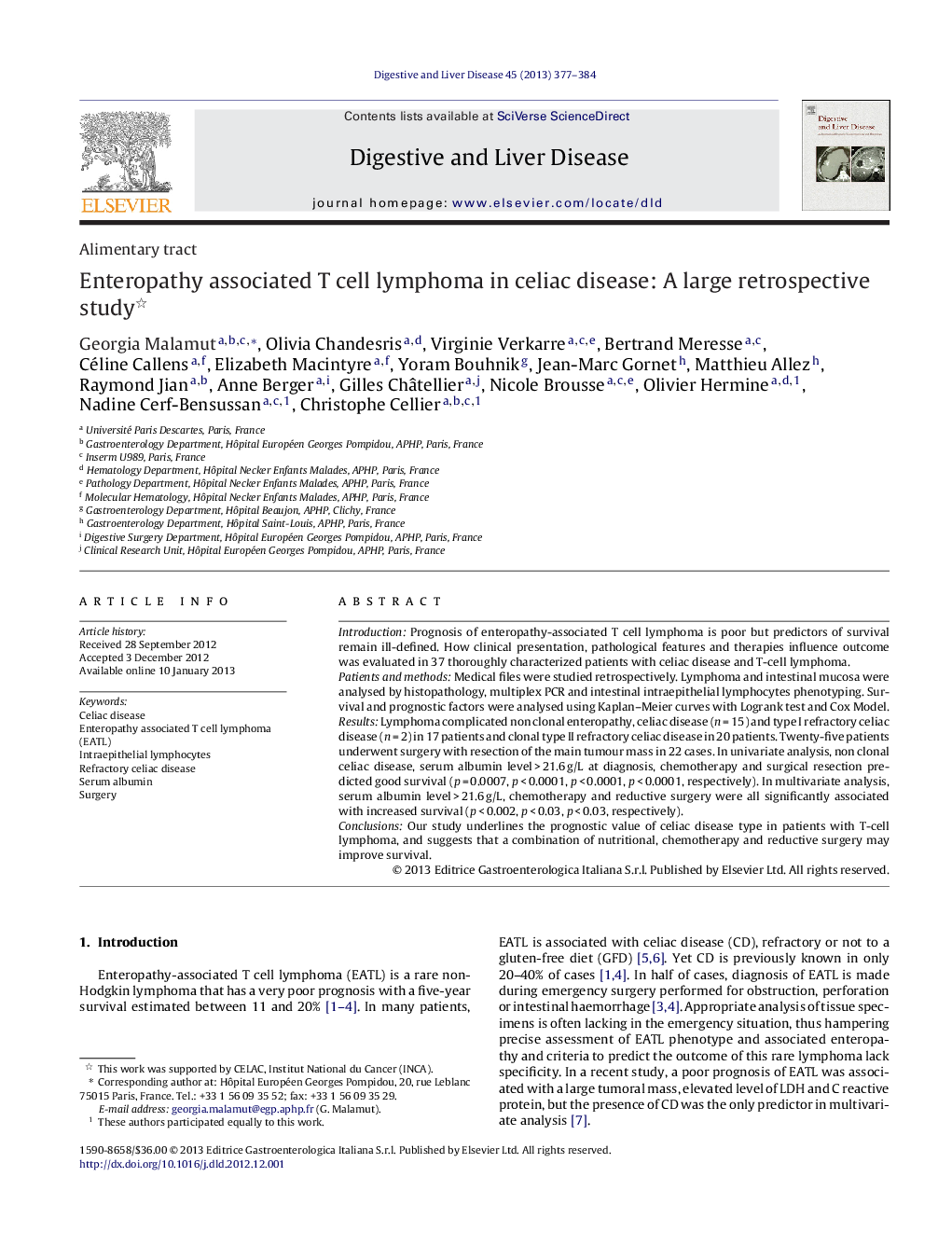| Article ID | Journal | Published Year | Pages | File Type |
|---|---|---|---|---|
| 3262183 | Digestive and Liver Disease | 2013 | 8 Pages |
IntroductionPrognosis of enteropathy-associated T cell lymphoma is poor but predictors of survival remain ill-defined. How clinical presentation, pathological features and therapies influence outcome was evaluated in 37 thoroughly characterized patients with celiac disease and T-cell lymphoma.Patients and methodsMedical files were studied retrospectively. Lymphoma and intestinal mucosa were analysed by histopathology, multiplex PCR and intestinal intraepithelial lymphocytes phenotyping. Survival and prognostic factors were analysed using Kaplan–Meier curves with Logrank test and Cox Model.ResultsLymphoma complicated non clonal enteropathy, celiac disease (n = 15) and type I refractory celiac disease (n = 2) in 17 patients and clonal type II refractory celiac disease in 20 patients. Twenty-five patients underwent surgery with resection of the main tumour mass in 22 cases. In univariate analysis, non clonal celiac disease, serum albumin level > 21.6 g/L at diagnosis, chemotherapy and surgical resection predicted good survival (p = 0.0007, p < 0.0001, p < 0.0001, p < 0.0001, respectively). In multivariate analysis, serum albumin level > 21.6 g/L, chemotherapy and reductive surgery were all significantly associated with increased survival (p < 0.002, p < 0.03, p < 0.03, respectively).ConclusionsOur study underlines the prognostic value of celiac disease type in patients with T-cell lymphoma, and suggests that a combination of nutritional, chemotherapy and reductive surgery may improve survival.
